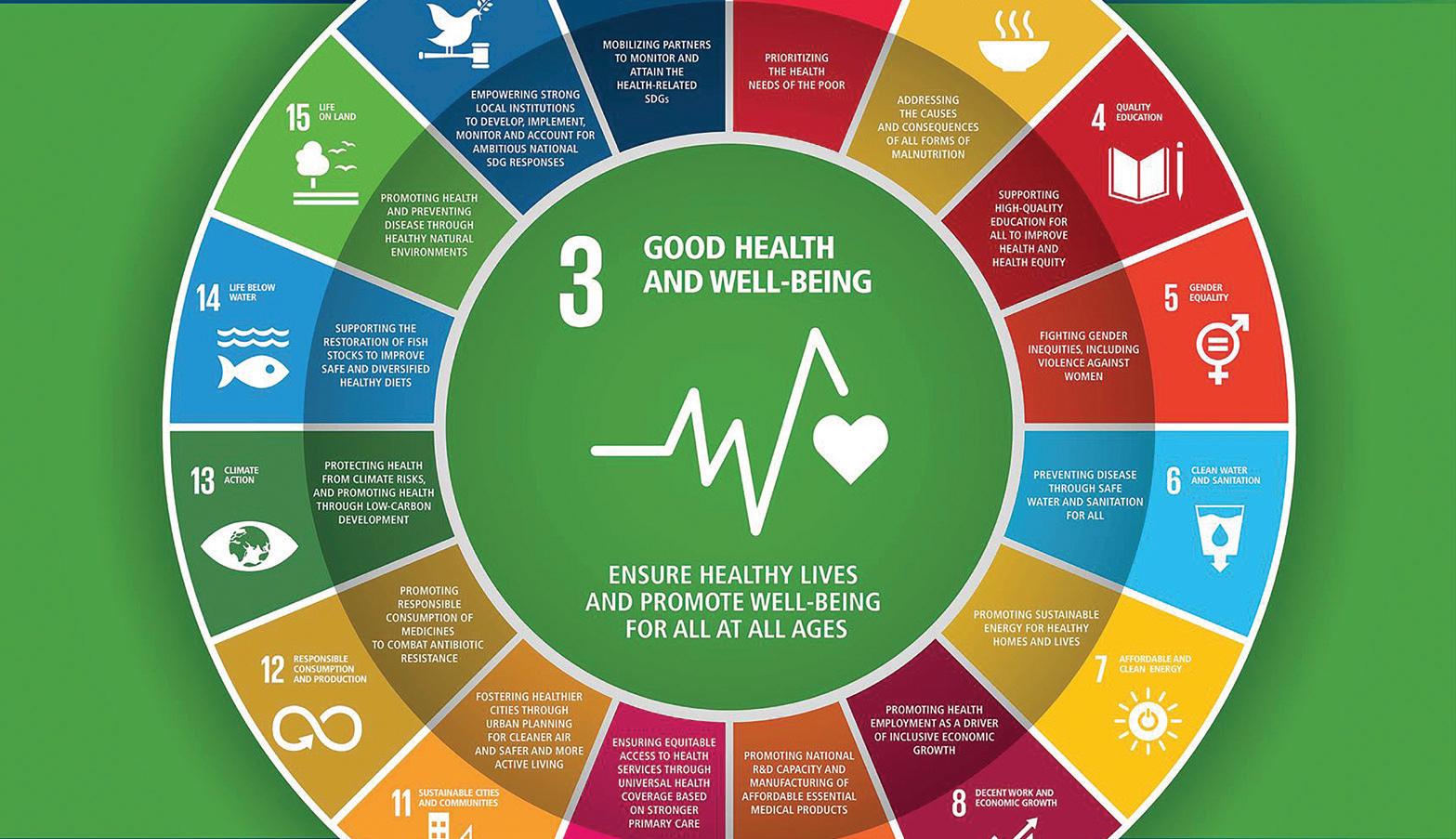
4 minute read
Global Initiatives
STEMPEL COLLEGE’S INTERNATIONAL WORK SPANS LATIN AMERICA, THE CARIBBEAN, ASIA AND EUROPE.
THE FUTURE IS GLOBAL
COVID-19 has not slowed down Stempel College’s international outreach. Since the start of the pandemic, the college has signed 15 agreements with universities and other institutions from the United States and countries like Antigua, Colombia, Ecuador, Peru and Italy. The agreements pave the way for increased collaborations between students and faculty on research projects, credit and non-credit courses, events and more.
Helping to foster these partnerships and opportunities is the Global Health Consortium, a collaborative platform that works to create solutions to the global health challenges of today.
And this global work is only just beginning. Stempel College’s latest hire Dr. Rajiv Chowdhury, former professor of Global Public Health at the University of Exeter and the University of Cambridge, will lead efforts to create a new Department of Global Health, helping build the next generation of global health professionals.
COVID-19 VACCINES: A GLOBAL EXPERTS’ SUMMIT
In 2021, FIU hosted the COVID-19 Vaccines: A Global Experts’ Summit, a three-part virtual event that brought together researchers and public health experts who discussed the latest on COVID-19 in the United States and the changing landscape of the pandemic in Asia, Africa and the Americas. Thousands of people tuned in to hear the experts from the World Health Organization, Stanford University, UNICEF and other institutions tackle topics like vaccine hesitancy, vaccine availability and boosters. The event was hosted by FIU’s Office of the President in collaboration with the Global Health Consortium at Stempel College, in partnership with the Pan American Health Organization (PAHO) and the National School of Tropical Medicine at Baylor College of Medicine.

—Dr. Carlos Espinal Director, Global Health Consortium
THE GLOBAL HEALTH CONFERENCE OF THE AMERICAS 2021
In December, public health experts and researchers gathered in Cartagena, Colombia, for the Global Health Conference of the Americas. Participants heard from renowned global health experts and speakers at the annual three-day conference and learned about the current data, comparisons and future plans for important topics such COVID-19, immunizations, child and adolescent health, climate change and environmental health. The event was hosted by the Global Health Consortium and the Colombian Society of Pediatrics.
— Silvia Restrepo Vice president of Research and Creation, Universidad de los Andes STEMPEL COLLEGE PARTNERS WITH SCHOOL OF MEDICINE IN COLOMBIA TO IMPROVE HEALTH AND WELL-BEING OF PEOPLE IN LATIN AMERICA AND THE CARIBBEAN
Stempel College is partnering with the School of Medicine at Universidad de los Andes (Uniandes) in Colombia—the first collaboration of its kind established in the Latin American region.
Leveraging the facilities of Uniandes in Bogota and Cartagena, the partnership will create collaborative spaces to bring together faculty and researchers from both institutions to develop and implement innovative academic, research and human resource initiatives. The goal is to help improve the health and well-being of people in Latin America and the Caribbean.
The partnership also opens the door for expanding educational opportunities for students, allowing them to participate in exchange programs, academic courses and scientific events. Key areas of focus include cybersecurity and health, COVID-19, antimicrobial resistance, environmental health, disaster management and more.

ASSOCIATE PROFESSOR TAPPED AS AN ADVISOR FOR THE WORLD HEALTH ORGANIZATION ON NEW NUTRIENT REQUIREMENTS FOR INFANTS
Dr. Cristina Palacios, associate professor in the Department of Dietetics and Nutrition, has dedicated the past 20 years to helping families live happy and healthy lives. She jumped at the opportunity when she heard that the World Health Organization (WHO) and the Food and Agriculture Organization (FAO) needed help revising nutrient requirements for children recently born to 36 months old. Palacios submitted her application and was chosen based on her expertise with the nutrients calcium, zinc and vitamin D. According to Palacios, due to a lack of data, most international health associations have based the infant nutrient
requirements on what healthy infants consume rather than on functional outcomes related to health growth and development. However, as new data becomes available on infant outcomes, experts like Palacios review the information and provide recommendations for updates based on functional outcomes. Palacios shared that the rollout of the requirements could take some time—she and the team are reviewing years of evidence produced by various public health and medical experts. “Now I have a way to translate my research into a practical recommendation that countries can apply to their nutritional programs. It will help ensure children receive the right amount of nutrients needed to thrive.”
—Dr. Cristina Palacios Associate professor, Department of Dietetics and Nutrition




